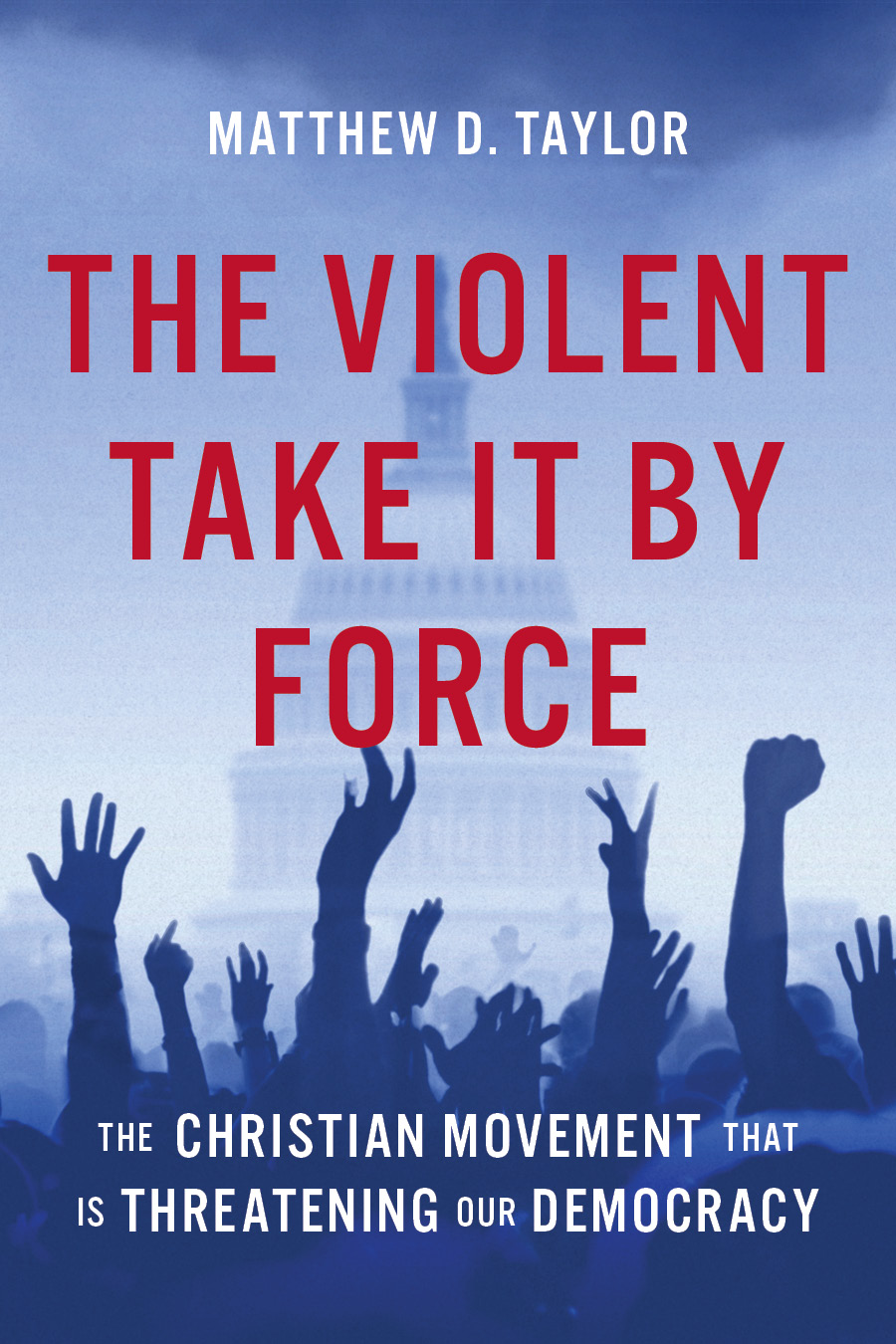Christian Nationalism
A threat to pluralist democracy
Christian nationalists advocate for privileging Christian citizens and imposing a Christian vision on societies. While such views are explicitly held by a relatively small segment of the American people, this tendency represents a set of ideologies and a political movement that is a grave threat to the American values of democracy and pluralism. This kind of Christian nationalism, like antisemitism and Islamophobia, should be recognized as a form of religious bigotry and challenged publicly where it is espoused.
This page compiles a sampling of videos, courses, articles, and other ICJS resources on Christian nationalism.
Spiritual Warriors: Decoding Christian Nationalism at the Capitol Riot

Watch this ICJS-produced documentary on Christian nationalism at the January 6th Capitol riot, featuring Matthew D. Taylor.
Gold Award Winner, 2024 Spotlight Documentary Film Awards.
Resources & Responses to Christian Nationalism
ICJS Scholar Matthew D. Taylor offers three suggestions for responding to Christian nationalism: Spread the word about Christian nationalism; engage people who are sympathetic with Christian nationalism in constructive, humanizing dialogue; and prepare yourself to defend democracy.

The Violent Take It By Force
Book by ICJS’ Matthew D. Taylor
In this new book, ICJS Protestant Scholar Matthew D. Taylor pulls back the curtain on the New Apostolic Reformation, a little-known movement of independent Charismatic Christians who see themselves as engaging in spiritual warfare on a massive scale against demonic forces.
Available September 2024
Charismatic Revival Fury
In this five-episode podcast, Matthew D. Taylor uses his own deep reporting and dozens of audio clips to examine the history of the independent charismatic Christian leaders associated with Christian nationalism and the Jan. 6 Capitol riot.
Featured Media
On the Media
 Meet the Media Prophets Who Preach Christian Supremacy
Meet the Media Prophets Who Preach Christian Supremacy
Host Brooke Gladstone speaks with Matt Taylor about different strains of Christian nationalism — from the sentimental view of America as a Christian nation, to the desire to uphold Christian supremacy.
NPR: All Things Considered
 The Long History of the Flag That Flew Outside Justice Alito’s Beach House
The Long History of the Flag That Flew Outside Justice Alito’s Beach House
Matthew Taylor explains the history behind the “Appeal To Heaven” flag, which was flown outside U.S. Supreme Court Justice Samuel Alito’s beach house.
The Nation
 The Trump Revival
The Trump Revival
To a growing contingent of right-wing evangelical Christians, Donald Trump isn’t just an aspiring two-term president. He’s an actual prophet. Journalist Chris Lehman quotes Matt Taylor.
ICJS Christian Nationalism Resources
In the News
Matthew D. Taylor is frequently cited in the media for his expertise on Christian Nationalism and the involvement of independent charismatic movements and leaders.
Christian Nationalism (Un)defined
This 3-session minicourse will examine the raging debates about how to define Christian nationalism and understand its impact on American politics.
Podcasts
Since the release of “Charismatic Revival Fury: The New Apostolic Reformation,” ICJS Protestant scholar Matthew D. Taylor has been interviewed about the NAR and the January 6 Insurrection on a number of podcasts, which are compiled on this page.
The religious forces that impelled some Christians to storm the Capitol haven’t gone away, and we ignore the gathering clouds of Christian nationalism at the peril of liberal democracy.
ICJS Protestant Scholar
Interview Matthew D. Taylor
When journalists are looking for a source to explain the background and context of Christian nationalism, they are increasingly turning to ICJS’ Protestant scholar Matthew D. Taylor.